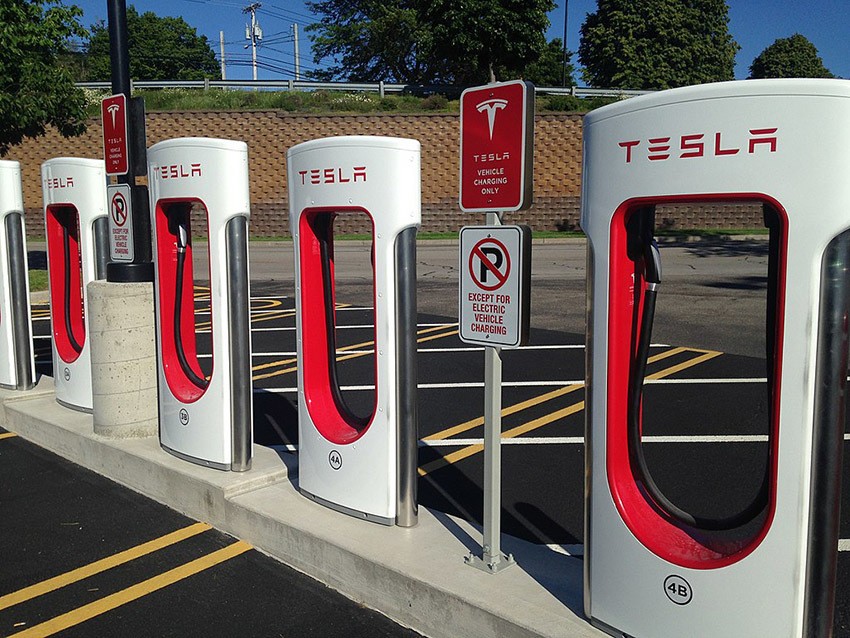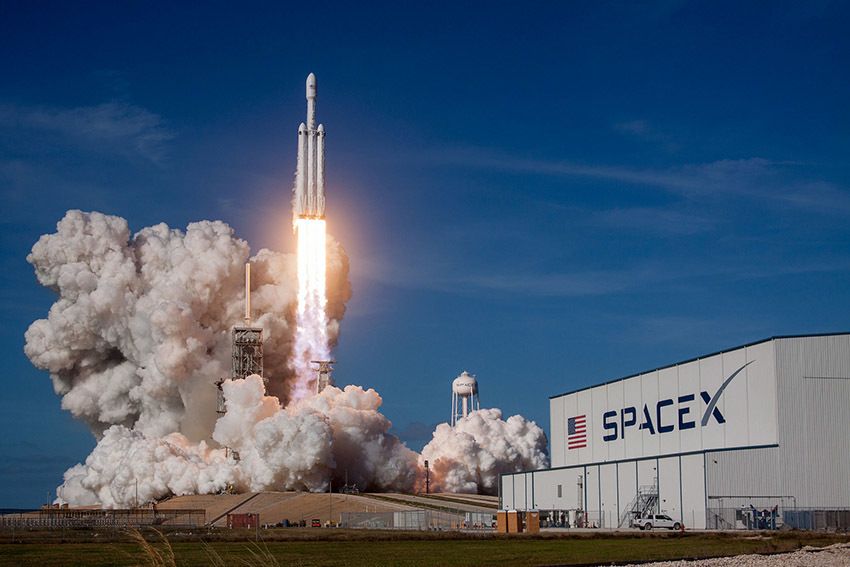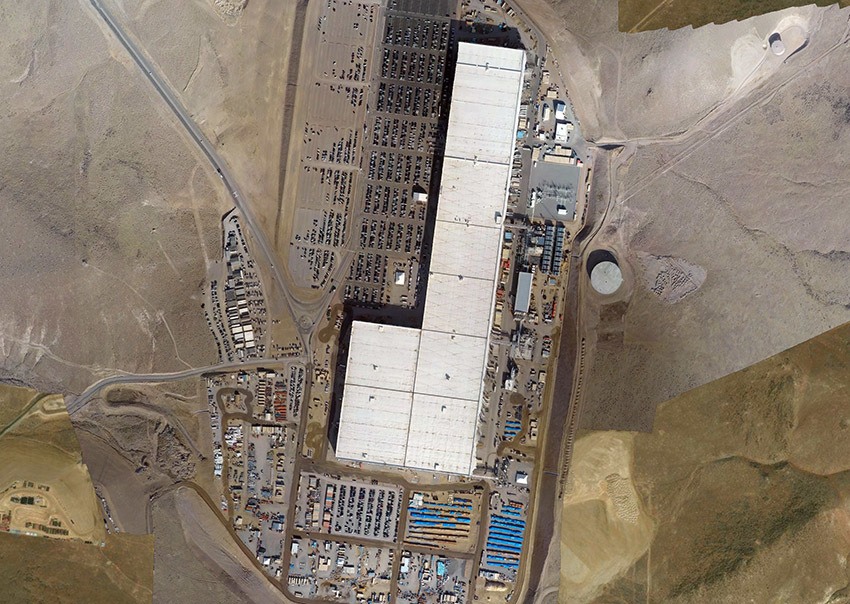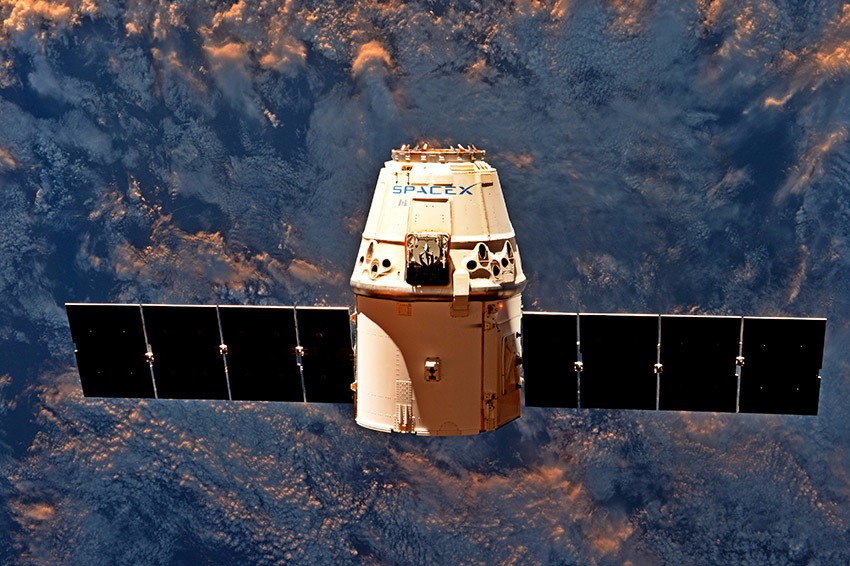“The world’s most remarkable living entrepreneur,” is what Chris Anderson, the founder of TED, calls him. Many compare him to Steve Jobs. Some say Elon Musk is in a league of his own.
Here’s a quick recap of his career:
- Drops out of a Stanford graduate program after two days and starts a business in the booming internet sector together with his brother Kimbal. (1995)
- Four years later, in 1999, the brothers sell their company, Zip2, for $307 million to Compaq. The sale nets Elon $22M. (this was not as easy and smooth as this one bullet suggests. Read this interesting 1999 Salon profile of Musk for more details).
- In 1999 he launches X.com, an online bank. This company eventually merged with its biggest competitor, Confinity, ran by legendary investor Peter Thiel.
- After renaming the company “PayPal” and its IPO, the business gets sold to eBay for $1.5 billion in 2002. Musk walks away with $165M.
- Launches SpaceX in 2002, sinking over $100M of his own capital into the venture.
- In 2004, Musk gets involved in Tesla and puts $70M into the company over the course of several years.
- Both SpaceX and Tesla sail past the brink of bankruptcy in 2008. Musk is down to his last dollars during this period (more on this below).
- Both companies make it through this “valley of death” and go from strong to stronger after that. SpaceX is the first private company to successfully launch a rocket that docks the ISS, as well as use reusable rockets that make it back to earth. Tesla is now worth more than GM, Ford, and Toyota.
- Along the way, Musk has also launched or been deeply involved in other companies such as SolarCity, Hyperloop, OpenAI, The Boring Company, and NeuraLink.
- Currently, Musk’s net worth is estimated at $19.4B.
Continuing our series of analysis on some of today’s most successful leaders, you can catch up on recent pieces we did on Phil Knight of Nike and Jeff Bezos of Amazon.
Not Just Another Billionaire
In this article, we’ll focus on leadership lessons distilled from many different sources covering Musk. But before getting into those, there’s one general issue we need to address: the sincerity of a billionaire Samaritan.
All Musk’s company missions sound heroic, and he repeats them in every interview he gives. They all boil down to the same concept: save the world.
Whenever a billionaire businessman uses such language, BS-alarms ring loudly. People, often rightfully, doubt whether it’s just a scheme to make more billions. This is especially true in Musk’s case since he has the most ambitious missions of them all. To make matters worse, the world’s most potent PR machines are working overtime to discredit him (e.g., Big Oil, Big Car, the aerospace industry, the military-industrial complex, governments like Russia and China, the list goes on).
Even without these behemoths throwing dirt at him, it’s easy to question his integrity. Some early media profiles of Musk are not flattering. Take this excerpt from a 1999 Salon profile:
“There is a talent that Musk has, but nobody can put his finger on it. It seems in some way to be connected to the mixture of brazenness and guilelessness involved in bringing a reporter down to the garage to see your million-dollar car. It is undoubtedly connected to the egotism that makes him unsuited to corporate maneuvering. Maybe Musk really has a special spark that lets him think more strategically than everybody around him. Maybe Musk really is the next big thing. Or maybe he has just managed to make his backers believe that he is the Brand X, the next superstar. In today’s Silicon Valley, the difference between being the next big thing and looking like it may not even matter.”
There are more passages in this same article suggesting Musk has an outsized ego. For example, one of his colleagues implies all Musk really wants is to be on the cover of Rolling Stone Magazine. And in other publications, like the Ashlee Vance biography on Musk, there are plenty of passages showing he can be inhumanly cold in the treatment of his staff.
To determine whether skepticism about Musk’s intentions is justified, it pays to look objectively at what he did to launch SpaceX and Tesla. When he netted $165M from his eBay/PayPal sale, he sank nearly all of it into SpaceX and Tesla, with no way of knowing whether he would succeed. In fact, he was one rocket launch away from total bankruptcy, both personally and for his companies. Adeo Ressi, one of his friends, describes the situation before the fourth SpaceX launch as follows:
“Everything hinged on that launch … If it works, epic success. If it fails – if one thing goes differently and it fails – epic failure. No in between. No partial credit. He’d had three failures already. It would have been over. We’re talking Harvard Business School case study – rich guy who goes into the rocket business and loses it all.”
This is not what money-driven, greedy businesspeople do. In fact, it’s not what most sane persons would do. When you manage to sell your company and walk away with $165M, you might:
- Do very little for a while, perhaps for very long.
- Become an investor in other people’s companies and let them do the hard work.
- Have wealth advisors advise you to “hedge” and “leverage” and “balance” your “portfolio.”
- Preserve a substantial part of your money for future generations.
- Get your pilot license, chase world records, and maybe start philanthropic projects.
Musk would have none of that. He already started working on his outrageous space colonization plans while still in the process of selling PayPal.

I’m not suggesting everyone who makes a ton of money should do what Elon Musk did, nor that he’s a saint. But he does genuinely seems to care about the fate of humanity, literally putting his money where his mouth is: when it mattered and when all was uncertain, he didn’t make a “leveraged bet.” He went all-in with his own money. He also had these missions clearly defined from the beginning, not added on later as a nice-sounding marketing spin.
I can’t judge whether he does or does not have an outsized ego, or whether he has a hidden agenda, or whether he’s cool in real life, but we should certainly root for the missions he’s pursuing as those could truly affect our fate.
Leadership Lessons
With that out of the way, let’s look at the leadership lessons we can learn from this living legend.
1. Don’t Wing It
When you hear Musk describe how SpaceX is going to colonize Mars, it sounds doable. When he lays out his plan for disrupting the entire car industry, you understand what he wants to do.
When people ask me what Pagely does, I can give them a succinct answer on Managed WordPress Hosting. When you ask many startup founders what their product does, you’re lucky if you get a logical answer.
Most offer relatively simple products or services. Musk is launching rockets into space and creates the most advanced cars the world has ever seen! We struggle to put our plans into words. He can explain them so that even my ten-year-old cousin understands what’s going to happen.
We’ve seen this trait in other leaders, like Jeff Bezos. But Musk is in a league of his own. You can see this at work when an interviewer asks him a question that seems impossible to answer. For example, in this video, Khan doesn’t expect Musk will give a serious answer to “when do you think the first human will set foot on Mars?” But Musk thinks for a few seconds, then gives a specific answer (2025).
This happens over and over again. For example, when Khan, in that same interview, asks him when electric cars will make up half of all vehicles (also 2025). Or in this TED interview, where Chris Anderson asks how many giga-factories will be needed to replace fossil fuels completely (“100”).
Having these answers ready doesn’t mean Musk is always right. But it shows he has taken the time to reason through these insanely complicated questions and worked out his plans all the way to the end. In other words: don’t wing it.
2. Audacious Goals Without a Business Plan are Unrealistic
During the Khan Academy interview, an audience member asks why Musk doesn’t care much about profits: he’s always talking about these lofty missions, never about money.
This observation couldn’t be farther from the truth. His plans are built on real business strategies. Yes, they’re bold and risky, but they do include a well-thought-out mechanism to make a profit.
Take Tesla. Musk and his team knew that building their first electronic vehicle would be prohibitively expensive. That’s why they started with a high-end car for the very wealthy: the Roadster. In true Lean Startup style, this car had to be pre-ordered before it was built. The roughly 600 pre-orders they received helped launch the company and paved the way for the Model S and later the X, both targeted at the luxury segment. Still expensive, but less so than the Roadster. From there Tesla went on to create the model 3, a much cheaper car for an even broader audience.

With Tesla, Musk never intended to build toys for rich people. Their goal is and has always been “to accelerate the advent of sustainable transport by bringing compelling mass market electric cars to market as soon as possible.” Had they started immediately with a mass market vehicle to fulfill this goal, Tesla would have failed.
Musk has applied the same approach at SpaceX. Their mission is to “revolutionize space technology, with the ultimate goal of enabling people to live on other planets.” They can’t achieve that goal without investing boatloads of money into research and development. Without a business model, nobody would be willing or able to fund a prohibitively expensive, 20+ year R&D trajectory.
Instead, SpaceX’s first significant goal was to do commercial space cargo deliveries for NASA and other entities. This approach is a lucrative and existing market and allows them to do R&D while earning money. Still, it’s an extremely hard objective, but it’s a plan that has a chance of succeeding (something SpaceX has indeed pulled off by now).
From here there are many more layers in SpaceX’s business model before actually getting to the ultimate goal of colonizing Mars. But it’s the same approach as with Tesla: a foundation built on a sustainable business model that is profitable, from where they can slowly work towards the true, big goal.
3. Leadership is Hard Work
“Being an entrepreneur is like eating glass and staring into the abyss of death” is a quote that’s often wrongly attributed to Musk.
In his interview with Khan Academy, Musk talks about what it takes to run a company. This is where these words originate from, and he attributes them to a friend of his. I’ve decided to cite that passage here in full, as it’s so recognizable for anyone who has been in a position of leadership, while this wisdom should be considered carefully by anyone who’s about to start a company or become CEO:
“A lot of times people think creating companies is gonna be fun. I would say it’s not, it’s really not that fun. I mean, there are periods of fun. And there are periods where it’s just awful. And particularly if you’re CEO of the company. You actually have a distillation of all the worst problems in a company.
There’s no point in spending your time on things that are going right, so you’re only spending your time on things that are going wrong. And those are other things that are going wrong that other people can’t take care of. So you have it the worst. You have a filter for the crappiest [sic] problems in the company. The most pernicious and painful problems.
So, I wouldn’t say it’s… I think you’d have to feel quite compelled to do it and have a fairly high pain threshold. A friend of mine says, starting a company is like staring into the abyss and eating glass. And there’s some truth to that.
The staring into the abyss part is that you’re constantly going to be facing the extermination of the company. Cause most startups fail. It’s like 90% or 99% of startups fail. So that’s the staring in the abyss part. So you’re constantly saying ‘if I don’t get this right, the company will die.’ Which can be quite stressful.
And then the eating glass part is that you got to work on the problems that the company needs you to work on, not the problems you want to work on. And so you end up working on problems that you really wish you weren’t working on. And so that’s the eating glass part. And that goes on for a long time.”
Just like the hardship we encountered in the article on Nike’s co-founder Phil Knight, keep this passage in mind when considering to launch your own company or take on the CEO position. Leadership is hard work.
4. Never Stop Learning
In his blog series on Musk, Tim Urban of Wait But Why points out one of the most important contributions to Musk’s success: his constant focus on improving his thinking.
Musk is a ferocious reader and always has been. According to his brother Kimbal, young Elon would often read for ten hours a day. And when asked how he built the knowledge on rocket science required to start SpaceX, Musk said he did so by reading all the relevant books on the topic.

But it’s not just reading. As has been reported in many other articles, like this one from James Clear, Musk reasons from so-called first principles. He gets to the foundational concepts of each topic, then builds his understanding upwards from there, instead of taking theories and conclusions from others for granted and starting from there.
He also continually adapts and reviews his mental models. For most people, once you’ve made a decision, you build other ideas on top of that original choice. When something fundamental changes to the principles that went into that first decision, most of us are not aware of this or forget to revisit the original starting point. Musk is the opposite. He’s a master of keeping an eye on the entire chain of logic and is not afraid to change his mind (and plan) when something has changed in the fundamentals.
He has demonstrated this many times. For example by dropping out of Stanford after just two days, concluding his chances of making an impact on the world were much higher by getting involved in the booming Internet. And he has done so with SpaceX.
His original idea was to launch two rockets to put a little plant on Mars, betting this would reignite the required excitement about space exploration so others (governments) would start working on interplanetary missions again. As he was investigating this option, he realized the real problem was not a lack of will, but a matter of cost: putting someone on Mars was simply too expensive.
Since he saw a way to bring those costs down substantially, he launched SpaceX.
5. The Future Needs to be Inspiring
If we want to understand why Musk does what he does, despite the hardship mentioned earlier, this answer in his 2017 TED interview is a good starting point:
“It’s important to have a future that’s inspiring and appealing. There have to be reasons that you get up in the morning and want to live. What do you love about the future? I find it incredibly depressing if being a multi-planetary species is not the future we’re going to have.”
This answer touches on several points that are important to Musk. For one, he’s very future-oriented. He thinks about the future a lot and sees it as “a branching stream of probabilities.” These probabilities will be affected by our actions in the present. Musk wants to ensure high odds for the positive and inspiring branches while minimizing the negative ones. If you look at the future and all seems dark, who wants to live?
He also wants to work on things that inspire the entire human species. As he explained in his Wait But Why interviews:
“Life has to be more than about solving problems. There have to be things that inspire you- that make you proud to be a member of humanity.
The Apollo program is certainly an example of that. Only a handful of people went to the moon- and yet, actually we all went to the moon. We went with them vicariously. We shared in that adventure. I don’t think anyone would say that that was a bad idea, that that wasn’t great.
We need more of those things- at least we need some of those things.”
If it’s at all possible to summarize Musk’s leadership in a few sentences, the above excerpts might be the closest we can get. He leads to solve the most critical problems for humanity because 1) those need fixing and 2) they’re inspirational and adventurous.
More Musk
This article has taken much longer to research than the previous ones on leadership. Digging into Musk is like opening Pandora’s box. The more you look, the more you find.
Recent articles on him barely mention earlier milestones like his first company, Zip2. After digging deeper, this turns out to be a fascinating story all by itself. So it is with X.com and PayPal, as well as the roles of his brother Kimbal and cousins in other business ventures like SolarCity.
Since this series is about leadership lessons, I’ve tried not to stray too far from that path. But considering his current age, wealth, and achievements to date, Musk has a good chance of becoming one of the, if not the most important figure of our time. If he succeeds with SpaceX to colonize another planet, it will be an essential milestone on the historical timeline of the entire human race.
If you want to learn more about Musk and his ventures, here are some of the resources I found most useful and interesting during my research:
- The Elon Musk Blog Series – Wait But Why (also available as eBook)
- TED interview 2017 (video)
- Elon Musk: Tesla, SpaceX, and the Quest for a Fantastic Future (book)
- Entrepreneur of the year, 2007: Elon Musk: this is a good snapshot of where things stood in 2007 and also gives a more in-depth look at Musk’s earlier businesses like Zip2.
- Fast Track (Salon, 1999): fascinating portrait of a very different, 27-year-old Musk when he had just sold Zip2 and is starting X.com.




I live & breadth Elon Musk. In my lectures on Strategy, Corporate Performance l hardly give a class without mentioning the name Elon Musk. Thank You for your susinct coverage of this living legend.